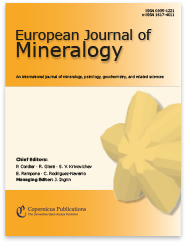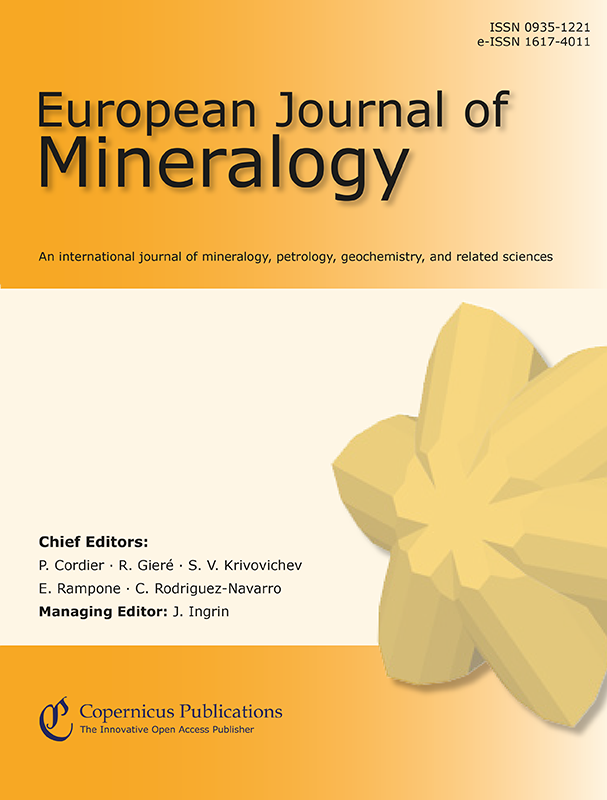
The European Journal of Mineralogy (EJM) was founded to reach a large audience on an international scale and also to achieve closer cooperation of European countries in the publication of scientific results. The founding societies have set themselves the task of publishing a journal of the highest standard open to all scientists performing mineralogical research, in the widest sense of the term, all over the world. Contributions will therefore be published primarily in English.
EJM publishes original papers, review articles, and letters dealing with the mineralogical sciences: primarily mineralogy, petrology, geochemistry, crystallography, and ore deposits, but also biomineralogy and environmental, applied and technical mineralogy. Nevertheless, papers in any related field, including cultural heritage, will be considered.
EJM was relaunched as an open-access journal in January 2020. Volumes 1 to 31 are accessible on the GeoScienceWorld website.
Scheduled special issues
Highlight articles
News
Notice on the current situation in Ukraine
To show our support for Ukraine, all fees for papers from authors (first or corresponding authors) affiliated to Ukrainian institutions are automatically waived, regardless if these papers are co-authored by scientists affiliated to Russian and/or Belarusian institutions. The only exception will be if the corresponding author or first contact (contractual partner of Copernicus) are from a Russian and/or Belarusian institution, in that case the APCs are not waived.
In accordance with current European restrictions, Copernicus Publications does not step into business relations with and issue APC-invoices (articles processing charges) to Russian and Belarusian institutions. The peer-review process and scientific exchange of our journals including preprint posting is not affected. However, these restrictions require that the first contact (contractual partner of Copernicus) has an affiliation and invoice address outside Russia or Belarus.






